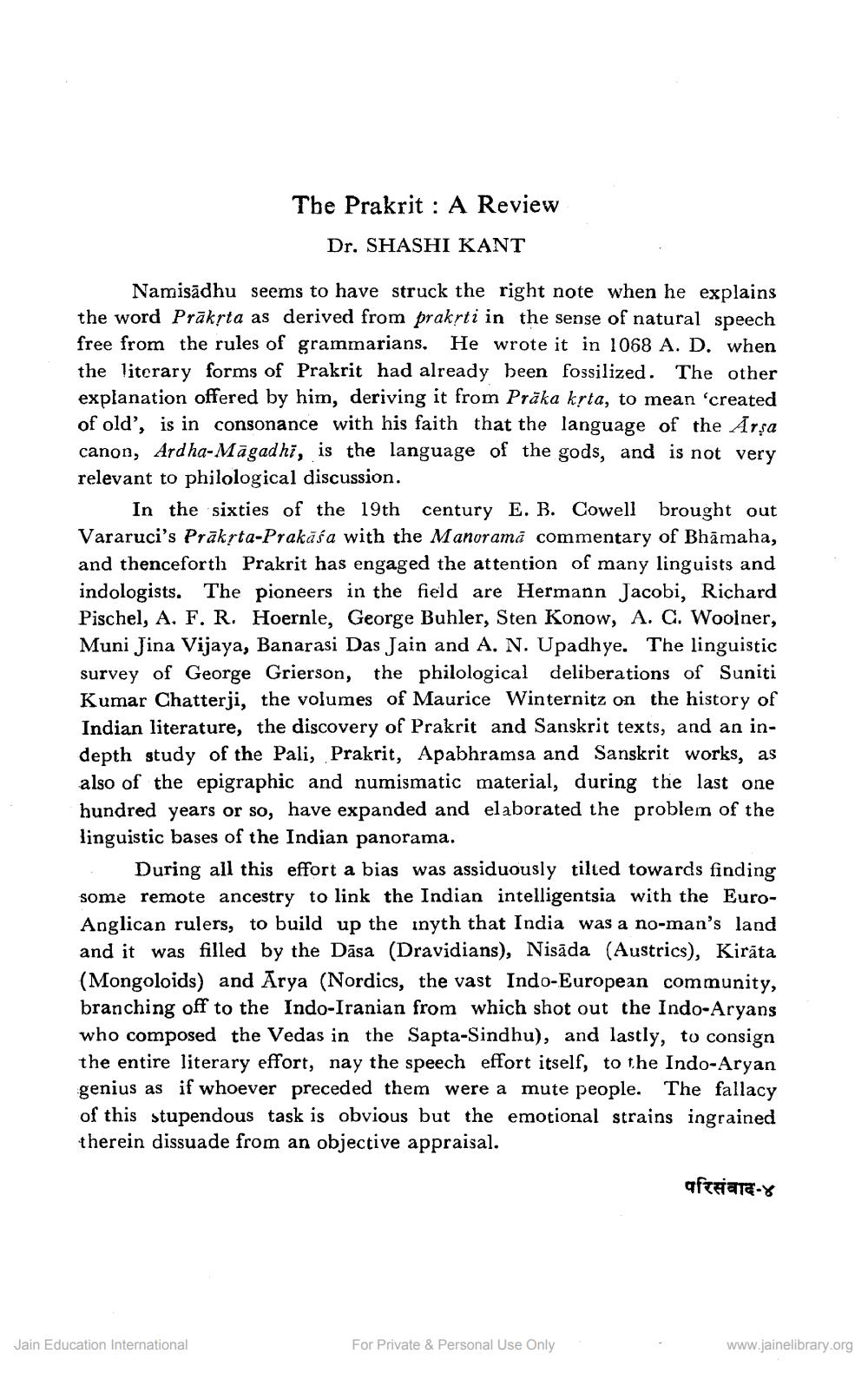Book Title: Prakrit A Review Author(s): Shashi Kant Publisher: Z_Jain_Vidya_evam_Prakrit_014026_HR.pdf View full book textPage 1
________________ The Prakrit: A Review Dr. SHASHI KANT Namisādhu seems to have struck the right note when he explains the word Prakṛta as derived from prakṛti in the sense of natural speech free from the rules of grammarians. He wrote it in 1068 A. D. when the literary forms of Prakrit had already been fossilized. The other explanation offered by him, deriving it from Prāka kṛta, to mean 'created of old', is in consonance with his faith that the language of the Arşa canon, Ardha-Magadhi, is the language of the gods, and is not very relevant to philological discussion. In the sixties of the 19th century E. B. Cowell brought out Vararuci's Prākṛta-Prakāśa with the Manorama commentary of Bhamaha, and thenceforth Prakrit has engaged the attention of many linguists and indologists. The pioneers in the field are Hermann Jacobi, Richard Pischel, A. F. R. Hoernle, George Buhler, Sten Konow, A. C. Woolner, Muni Jina Vijaya, Banarasi Das Jain and A. N. Upadhye. The linguistic survey of George Grierson, the philological deliberations of Suniti Kumar Chatterji, the volumes of Maurice Winternitz on the history of Indian literature, the discovery of Prakrit and Sanskrit texts, and an indepth study of the Pali, Prakrit, Apabhramsa and Sanskrit works, as also of the epigraphic and numismatic material, during the last one hundred years or so, have expanded and elaborated the problem of the linguistic bases of the Indian panorama. During all this effort a bias was assiduously tilted towards finding some remote ancestry to link the Indian intelligentsia with the EuroAnglican rulers, to build up the nyth that India was a no-man's land and it was filled by the Dasa (Dravidians), Nisāda (Austrics), Kirāta (Mongoloids) and Arya (Nordics, the vast Indo-European community, branching off to the Indo-Iranian from which shot out the Indo-Aryans who composed the Vedas in the Sapta-Sindhu), and lastly, to consign the entire literary effort, nay the speech effort itself, to the Indo-Aryan genius as if whoever preceded them were a mute people. The fallacy of this stupendous task is obvious but the emotional strains ingrained therein dissuade from an objective appraisal. Jain Education International For Private & Personal Use Only परिसंवाद-४ www.jainelibrary.orgPage Navigation
1 2 3 4 5 6 7
